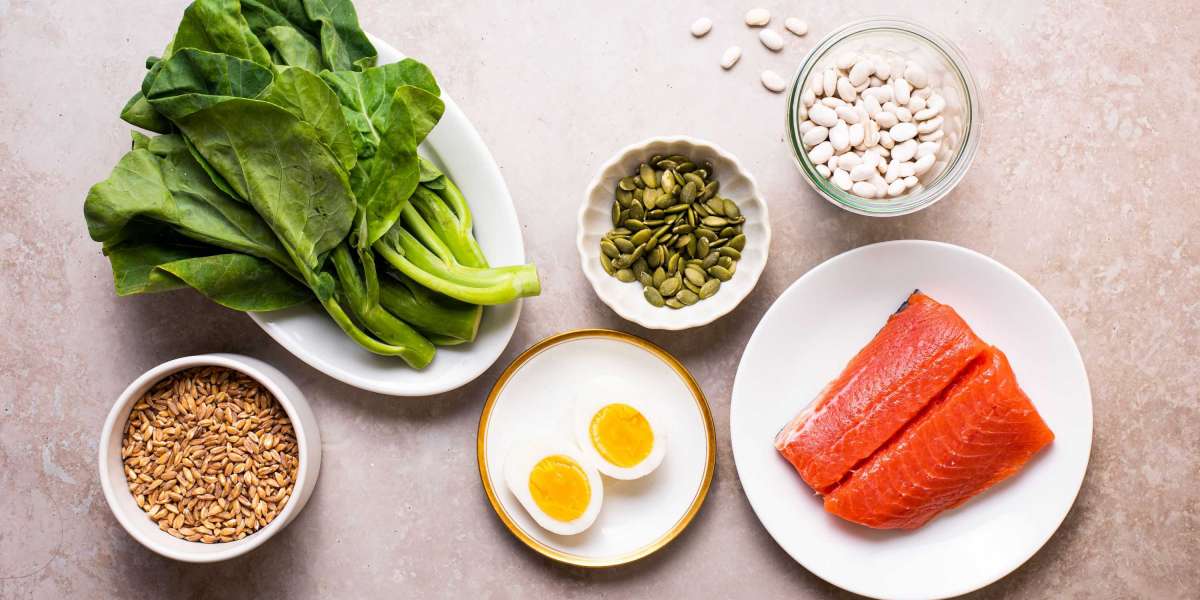Welcome back for part two of our Men’s Health Month Eating for Next-Level Fitness series. Brett Singer, a registered sports dietitian with Memorial Hermann IRONMAN Sports Medicine Institute, is back to offer more ways you can eat to achieve optimal health, fitness, and athletic performance.
Follow our social channels all month long to join the conversation.
When it comes to weight loss, muscle building, and recovery, a little math goes a long way. These 6 tips are designed to support your workout regimen and fitness goals for improved health.
Carbohydrates are our primary energy source during high-intensity exercise
When we consume carbohydrates during exercise, we can sustain higher intensity activity for longer, delay fatigue, and ultimately perform better.
A good rule of thumb is to consume 30 to 60 grams of carbs per hour during continuous exercise lasting longer than 90 minutes.
This can come in the form of sports drinks, gels, fruits, chews, or bars. If the activity is at a low intensity, has frequent breaks built in (such as a gym session), or is a short duration, carbohydrate intake during exercise should not be necessary.
INCREASE STRENGTH AND MUSCLE MASS WITH ADEQUATE PROTEIN
If you’re looking to build strength and muscle, try consuming about 1.4 to 2.0 grams of protein per kilogram of body weight each day.
While more is certainly fine if preferred, consuming this amount of protein in combination with a resistance training program, and adequate energy intake can support improvements in strength and muscle mass.
Unsure how to calculate this out?
Divide your weight in pounds by 2.2, this converts your weight to kilograms. Now multiply by the referenced protein range.
INCREASE YOUR PROTEIN INTAKE TO LOSE WEIGHT
When attempting to lose weight, protein intake should be increased even further. Weight loss can result in loss of muscle and strength.
By combining a higher protein intake with resistance training, more muscle can be spared. Protein can also help us feel more full.
While there isn’t a perfect number for everyone, recommendations for daily protein intake during weight loss are as high as 2.4 grams per kilogram of body weight.
UP YOUR CARB INTAKE BETWEEN SAME-DAY RAINING SESSIONS
Two training sessions in one day?
Protein commonly seems to be the focus for recovery after exercise. While protein is important, athletes performing two training sessions within one day should prioritize carbohydrate intake immediately following the first session.
Consuming carbohydrates within the first hour, and each hour for the first several hours after exercise allows for rapid restoration of carbohydrate stores within the muscle. Cenforce 100andCenforce 200pills are the most prevalent and renowned blue pills which are frequently used to treat Erectile dysfunction.
Aim for approximately 1 to 1.2 grams of carbohydrate per kilogram of body weight (or about ½ gram of carbs per pound of body weight) within the first 60 minutes after exercise when preparing for two high-intensity sessions within the day.
Fruit, grains, starchy veggies, or recovery drinks containing carbohydrates can all be potential options to include after exercise.
LIMIT SWEAT LOSS TO NO MORE THAN 2% BODY WEIGHT DURING EXERCISE
When we exercise, we produce sweat to help remove heat from our body and ultimately regulate our core temperature. When we lose more than 2% of our body weight from sweat, especially when exercising in hot environments, performance starts to decline.
So how can you determine if you’re on the right track? Weigh yourself (in minimal clothing) right before exercise. Immediately following exercise, dry off and change out of wet clothes, and weigh again.
If you’ve lost much more than 2% of your body weight, you may want to consider consuming more fluid during exercise sessions moving forward.
REHYDRATE PROPERLY AFTER EACH EXERCISE SESSION
Once an exercise session is complete, it’s time to rehydrate in preparation for the rest of our day and upcoming exercise sessions.
While a pound of sweat is equal to 16 ounces, it is recommended that we drink closer to 20 to 24 ounces of fluid for every pound of sweat lost within a few hours of exercise completion.
This helps make up for some of the initial urine production that occurs with our fluid intake and helps us get back to baseline hydration status.



